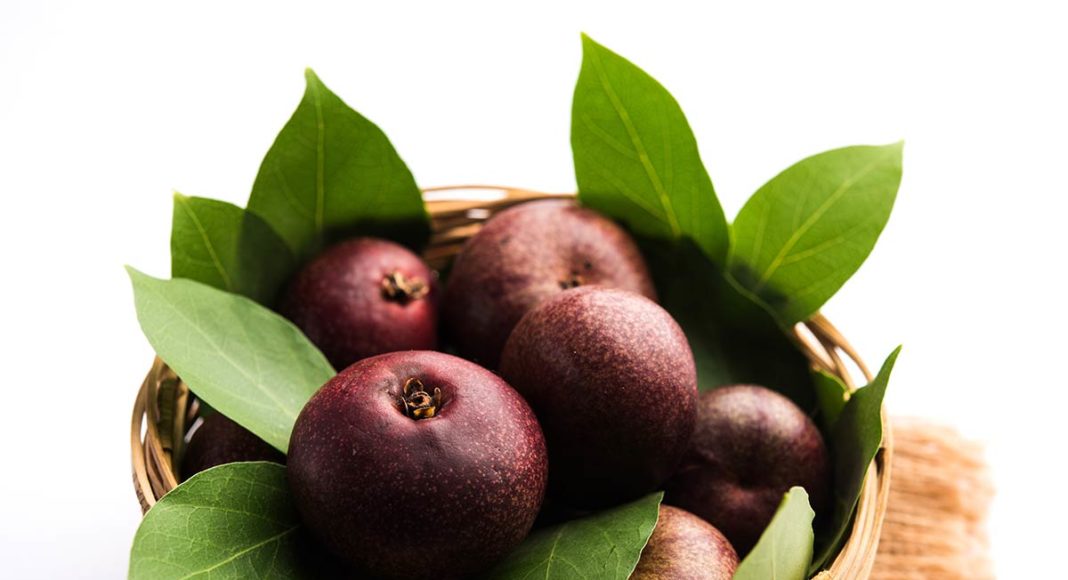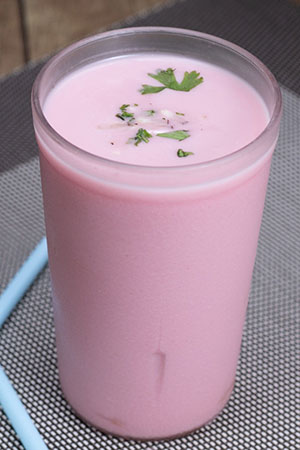Native to India and related to mangosteen, Kokum is a plant obtained from a fruit-bearing tree and is otherwise known as Garcia Indica. Originating in the Western Ghats in India, there are currently 35 species of this plant that can be found across the country. Mainly found alongside rivers, wastelands, and primarily preferring evergreen forests, Kokum has a tonne of culinary, pharmaceutical, and industrial uses.
This fruity and tangy spice is obtained by sun-drying the outer covering of the fruit to produce ‘Kokam’ or ‘Aamsul’. Highly popular in Maharashtrian, Goan, and parts of Karnataka cuisine, Kokum is primarily used as a souring agent due to its sour and peculiar flavour. The spice is deep red when on the tree but after drying changes to a deep purple and almost black shade. It can easily be used to enhance flavours in daily home cooking. All one needs to do is drop a piece or two in the dish and let the heat do its trick as the spice infuses itself with the already existing flavours. Kokum works very well in curries, especially vegetable curries, and pulses. Its flavour also encourages cooks to use this spice as a replacement for tamarind in many south Indian dishes. Apart from southern India, Kokum is widely used in Gujarati and Assamese cuisines for specific purposes; Gujarati cuisine adopts the use of this spice to flavour their dal with a pinch of tartness. Similarly, Assamese cuisine also uses Kokum to produce dishes such as sour fish curry (Masor Tenga) and sour dal (Tenga Dali).

Additionally, the Kokum fruit makes for a great refreshing syrup or a bright red squash. The fresh fruit is preserved with sugar, then diluted with water, and then stored in bottles; this beverage is sold as Kokum Sarbat. Also, kokum is widely used to prepare a liquid appetiser called Solkadi which is usually had with rice or as a drink post a full meal. This appetizer is famous in Goa and Maharashtra.
In addition to Kokum’s incredible flavouring properties, the spice also has a multitude of health and medicinal benefits. Kokum butter which is an oily extract derived from the spice is widely used in ointments and suppositories. Kokum fruit also can manage lipid metabolism; the rind of the fruit is rich in hydroxy citric acid which helps in this process.
Kokum also has vast Ayurvedic properties. Consuming the dried fruit in form of juice is considered a natural remedy to relieve burning sensations in the heart and acidity attacks, as well as to strengthen digestion.
The fruit also has phenolic compounds that enrich its anti-inflammatory and anti-allergen properties; this makes it great for healing wounds and cuts. Ayurveda suggests that applying the fruit to even burn wounds, allergy sores, swellings, and more helps reduce inflammation.
Rich in Vitamin A, B3, C, as well as minerals such as calcium, zinc, potassium, Kokum is highly rich in nutrients, as well as beneficial for diabetics due to its anti-oxidant and anti-diabetic properties. The fruit can replenish bodily enzymes that type 2 diabetic patients lack, as well as the high nutritional values aids digestion, ensuring better insulin functioning.
Apart from these medicinal benefits, kokum is a natural mood booster and exceedingly hydrating. The Kokum sherbet is a summer drink that is known for its cooling and hydrating properties. Additionally, Kokum consumption increases the body’s serotonin production which helps elevate mood, calms anxiety, and reduces negative emotions, leaving you cheerful and positive.
Whether you choose to consume it for its flavoursome properties or its medicinal and health benefits, Kokum is a spice to watch out for. Try it out yourself with this easy Sherbet recipe that will cool your inside out in this hot summer season!
Kokum Sherbet

Ingredients
- A Cup of Dried Kokum
- 1 teaspoon Roasted cumin powder
- ½ teaspoon cardamom powder
- Salt
- 2 cups water
- 2 cups sugar
Method
- Start by soaking dry kokum in water for two to three hours; mash the mixture, strain, and set aside.
- Transfer remaining kokum into a skillet and add sugar, cumin powder, cardamom powder, and a pinch of salt. Cook until sugar melts.
- Add the previously prepared kokum water and bring to a boil. Then let it simmer for five minutes.
- Take off the heat and let it cool. Store the concentrate in a glass bottle in the refrigerator.
- To make sherbet, mix three tablespoons of kokum mixture in chilled water, add ice cubes, and serve cold!



